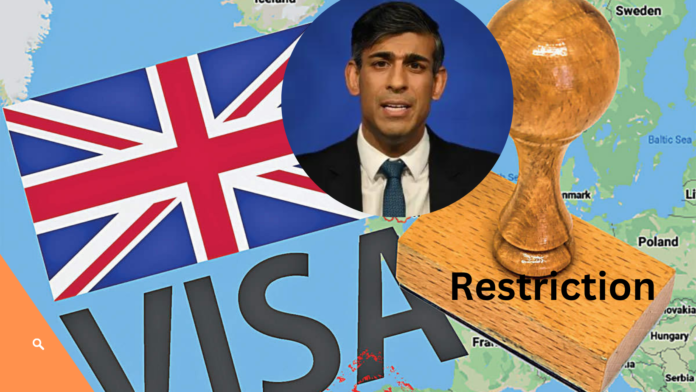The UK has prohibited some students and workers from bringing family members
The UK’s restrictions are rooted in broader migration concerns and stand as a key element of the Conservative Party led by Rishi Sunak. The latest guidelines for students reflect these measures.
During a December session in Parliament, Home Secretary James Cleverly emphasized the need to reduce migration to the country, citing figures from the Office for National Statistics. In the year up to June 2023, net migration stood at 672,000, a decline from 745,000 in 2022. Notably, a significant percentage of Nigerian and Indian nationals resided in the UK on dependent student visas, followed by individuals from Pakistan, Bangladesh, and Sri Lanka.
The new strategy will prevent international students from transitioning from the student visa track to work visas before finishing their studies. Earlier, under certain circumstances, students were able to start working during their last semester.
What are the specifics of the recent regulation concerning bringing dependents to the UK?
As outlined in the 2023 Migration Advisory Committee (MAC) annual report, which advises the government on immigration policy, two primary factors contributing to the recent surge in net migration are the increase in migrant workers within Health and Social Care and the escalating numbers of international students.
In May 2023, the government introduced a set of initiatives aimed at decreasing the issuance of student visas. Then-Home Secretary Suella Braverman highlighted in a statement that approximately 136,000 visas were issued to dependents (partners or children) of sponsored students by the year ending December 2022, marking an increase of over eight times compared to the 16,000 visas issued in 2019, aligning with the government’s pledge to reduce net migration.
Part of the government’s policy included “Removing the right for international students to bring dependants unless they are on postgraduate courses currently designated as research programmes.”
Reducing net migration has remained a key focus for the Conservative Party led by Rishi Sunak.
This objective was prominently highlighted during the 2016 campaign advocating for the UK to exit the European Union, commonly known as ‘Brexit’. Conservatives contended that Brexit would grant the UK autonomy from EU regulations, especially in immigration matters, emphasizing the nation’s independence in decision-making.
- The government intends to notably limit the jobs eligible for sponsoring overseas workers below the minimum salary, with alterations to the list slated for implementation no sooner than April 2024. Simultaneously, the minimum income necessary to sponsor someone for a spouse/partner visa will gradually escalate from £18,600 to £29,000, eventually reaching approximately £38,700. The initial raise is anticipated in “spring 2024,” followed by a further increase to around £38,700 “in early 2025,” as outlined by the government’s plans.
- The Migration Advisory Committee will begin to review the Graduate visa system this month. A Graduate visa is an unsponsored work permit for overseas graduates of British universities. The graduate route introduced in 2021 enables international students to remain in the UK for up to 2 years for undergraduate or Master’s degrees, and up to 3 years for doctoral degrees, following the completion of their course.
The UK Home Office highlighted that workers and their dependents constituted a significant portion of the visas being granted. Specifically, Skilled Worker and Health and Care Worker visas made up 63 percent of work grants, while the percentage of work-related visas granted to dependents increased to 43 percent by the year ending September 2023.
“We are concerned about this trend which could lead to increased shortages of healthcare staff in lower income countries,” the report adds.


